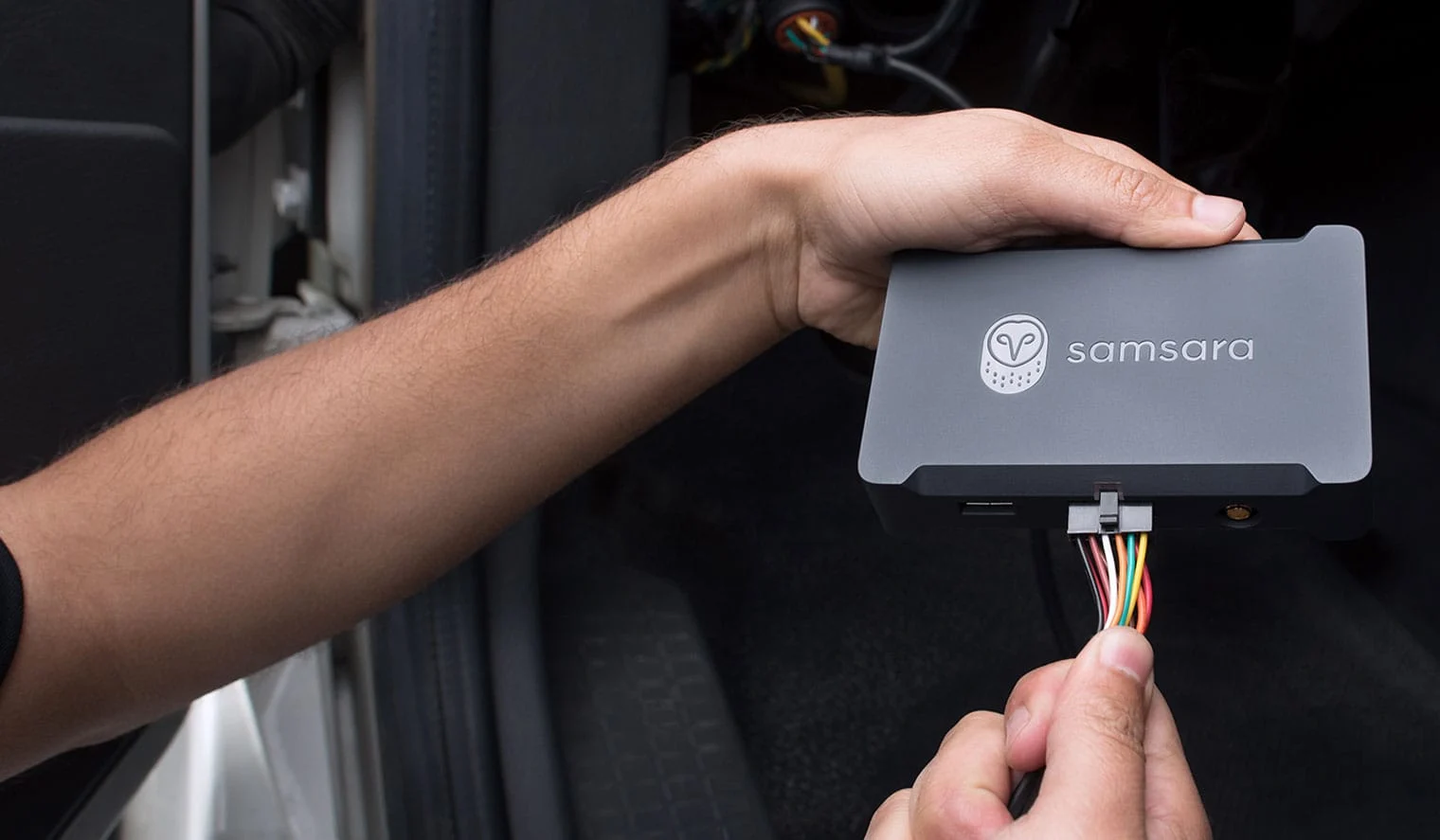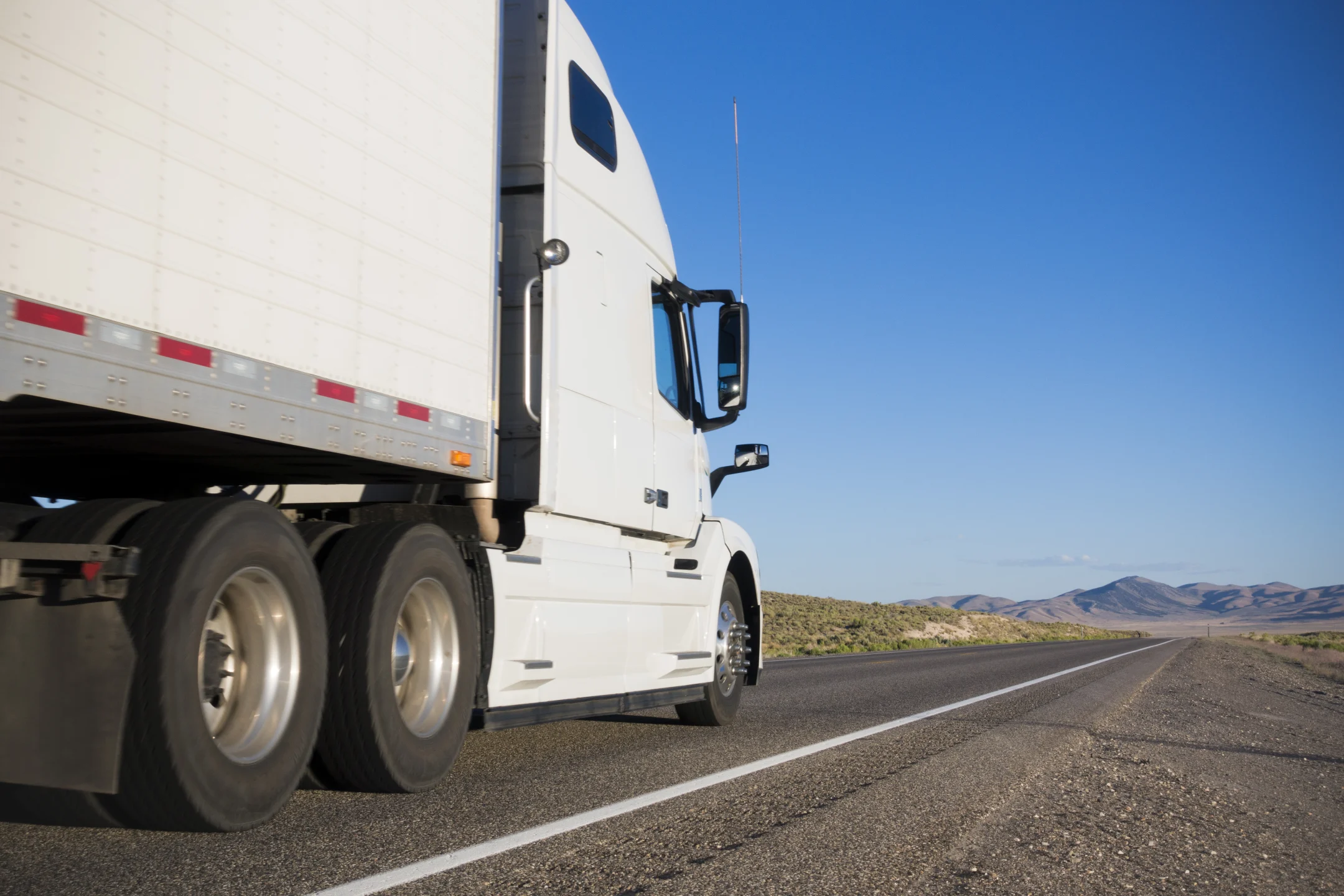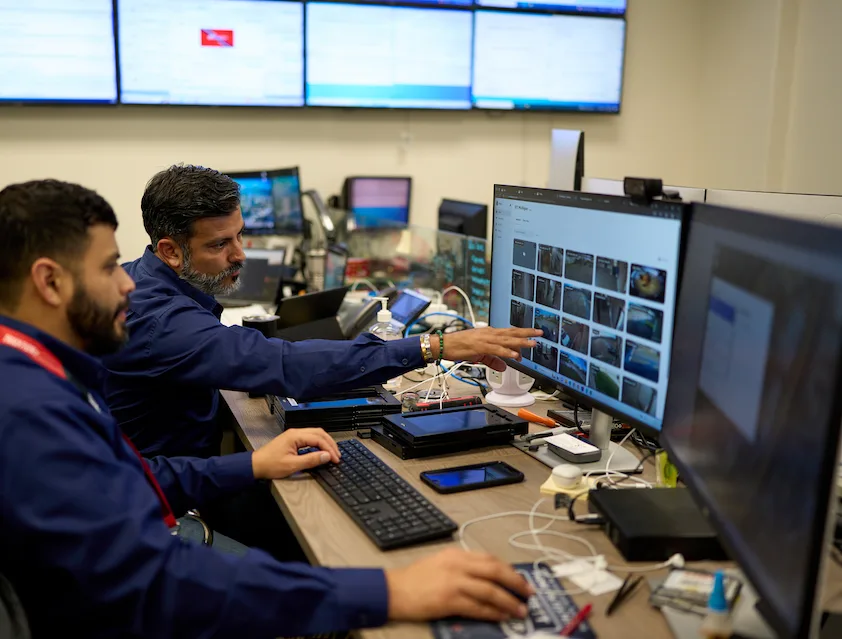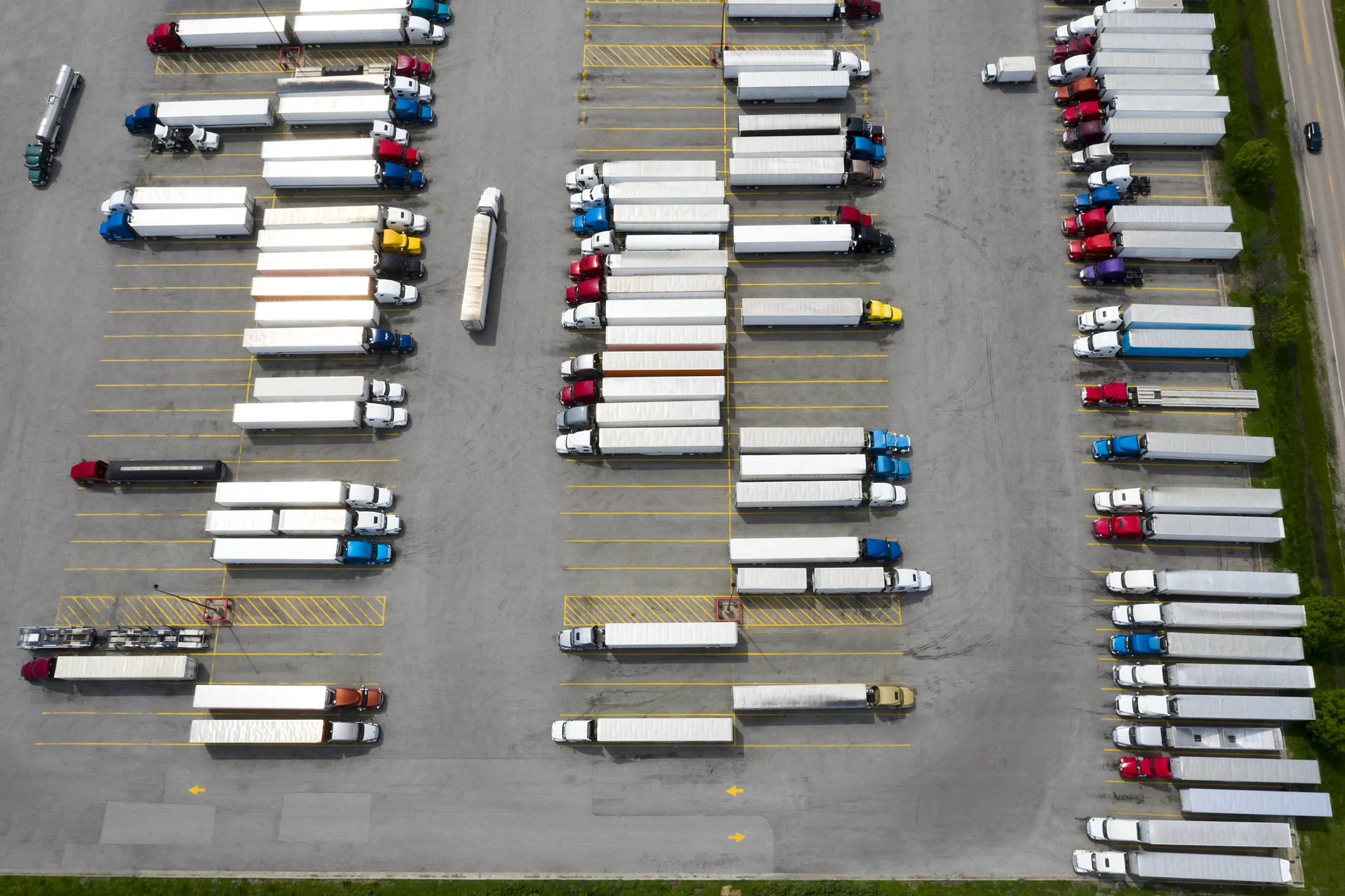Efficiency
Fleet Leasing vs. Buying: What to Consider When Searching for Your Next Vehicle
April 24, 2019
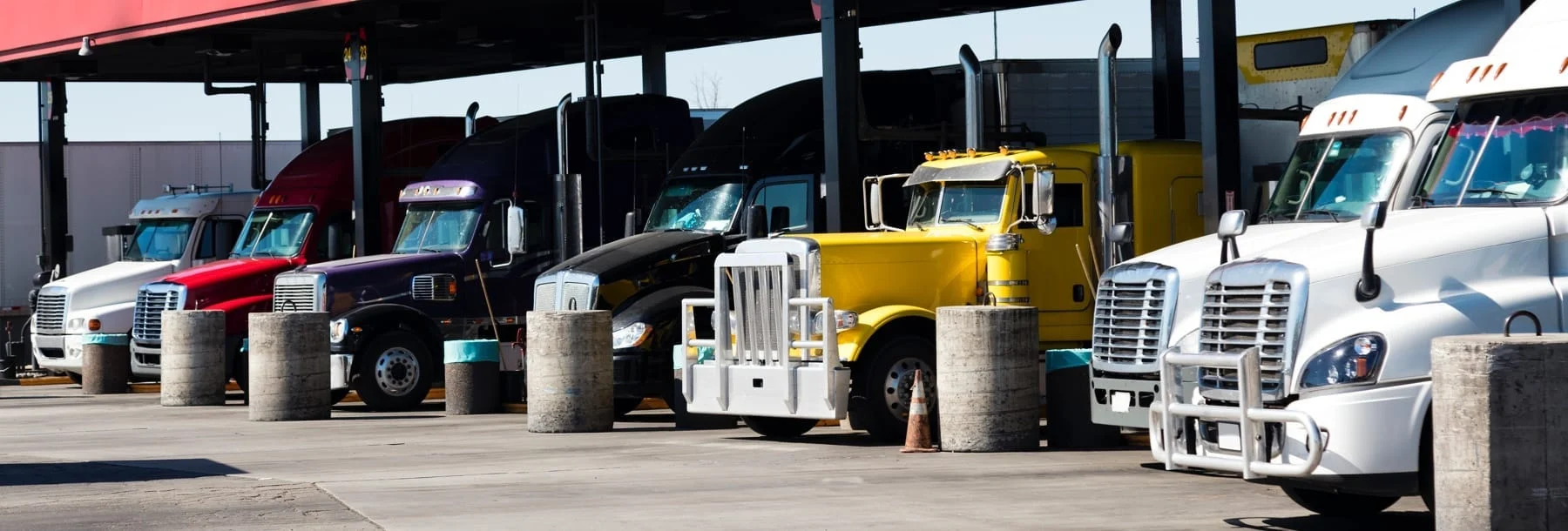
Looking to add a new vehicle to your growing fleet?
If you're a fleet manager, you might need a new vehicle to support evolving business needs or maybe you're creating a vehicle acquisition plan for the upcoming year. Whether you're shopping for a single vehicle or hundreds of trucks, you're bound to wonder if it's more cost-effective to lease or buy. Although the answer depends on a number of factors—like your fleet size or cash flow—it's important to consider both options.
Here are some key considerations to take stock of before making the decision to lease or buy:
1. Cost
Buying is more affordable in the long-term but leasing can be a good option if you don’t have the capital in the short-term.
Depending on your business's situation, a major advantage of vehicle leasing can be lower monthly payments. This can be useful if your company needs to preserve capital for other pressing company initiatives but still needs additional vehicles to operate effectively. The important thing to remember is that your payments are not going toward ownership. If you choose to re-sign a lease after it ends, that means additional monthly payments. Purchasing a vehicle will typically mean higher monthly payments, but the upside is the payments will eventually stop when the vehicle is paid off.
<br>
<a id="blog-inline-1" href="/learn-more" title="Learn more about Samsara" class="btn primary-btn btn--blue">Learn more about Samsara</a>
<br>
Insurance is another cost to factor into your budget. Many lease agreements will require more insurance coverage than you might purchase for your own vehicle. Leasing companies tend to have different standards that require non-negotiable, higher limits of liability. To get a better understanding of what you can afford, start by calculating hypothetical monthly costs for both leasing and buying.
If you divide the retail cost of the vehicle by the number of months you want to use it for, you’ll get a benchmark cost for how the lease price compares to buying. From there, you’ll want to factor in things like fuel costs, registration fees, and vehicle utilization. Keep in mind that these elements will differ based on whether you lease or buy—for example, you’re likely to spend more on gas if you own an older truck and less if you lease a newer vehicle.
<br>
<a id="blog-inline-1" href="/learn-more" title="Learn more about Samsara" class="btn primary-btn btn--blue">Learn more about Samsara</a>
<br>
2. Maintenance
Whether you buy or lease, maintenance costs will be unavoidable...but things like vehicle model year and usage will impact the number of maintenance trips and your bottom line.
Many fleet vehicles operate under severe duty which means they typically require more maintenance and repairs. Because leased vehicles tend to be newer models, it is possible you'll visit the repair shop (and gas station) less frequently than if you purchase an older truck. Many full-service lease agreements will even include maintenance, but the coverage varies.
Phillip Deckers is the Director of Operations Initiatives & Analytics at Maines Paper & Food Service, a distribution company that operates in 37 states across the United States. Maines leases all of their vehicles but Deckers emphasizes the importance of understanding how your lease agreement incorporates maintenance before signing the dotted line. “If you’re leasing from someone that is both the maintenance provider and the lessor, they are better incentivized to keep the equipment in a good condition,” Deckers said. “If you are leasing from one company and having someone else do maintenance, there is less of an incentive when it comes to maintenance.” Since the contracted maintenance company does not actually own the vehicle, you run the risk of less comprehensive care.
<br>
<a id="blog-inline-1" href="/learn-more" title="Learn more about Samsara" class="btn primary-btn btn--blue">Learn more about Samsara</a>
<br>
If you decide to buy, keep in mind that maintenance costs will pile up—especially if the truck is older. Before making a decision, budget for regular maintenance or repair costs to get a sense of annual cost, and keep in mind that maintenance costs for vehicles four to six years old are nearly three times higher than the first three years.
Whether you buy or lease, it's important to make sure your fleet maintenance is consistent. Samsara lets you set maintenance triggers for all vehicles or pieces of equipment, whether that be mileage for delivery trucks or engine hours for transit buses.
3. Flexibility
A good rule of thumb is to lease if you notice your fleet has a high vehicle turnover rate, and buy if it skews lower.
Arguably one of the more attractive benefits of leasing is the flexibility it can provide. If you’re still determining the optimal number of vehicles for your operations, it might be less than ideal to get tied to a specific vehicle for an extended period of time. Leasing can be a great way to experiment with the number of vehicles your fleet needs without locking your business in for the long-haul. “If you know that your need is going to vary cyclically, arrange some leasing with rentals for seasonal business,” Deckers said. Short-term leases are available but the downside is they’ll come at a higher cost.
If you decide on a standard leasing agreement, prepare to get locked into a year-plus commitment. With truck and equipment lease agreements running anywhere from one to ten years, you are committing to a long-term contract. If business needs change and you need to break the lease agreement, you’ll be looking at a hefty penalty fee. A good rule of thumb is to lease if you notice your fleet has a high vehicle turnover rate, and consider buying if it skews lower.
Unsure how to understand vehicle turnover and utilization? Samsara makes it easy to identify underutilized vehicles with our Vehicle Utilization report so you can get a better idea if leasing or buying makes more sense for you and make sure you don't purchase or lease more than is absolutely necessary. This report allows you to see the monthly engine hours, miles, and active days so you can understand if a vehicle is serving its purpose.
<br>
<a id="blog-inline-1" href="/learn-more" title="Learn more about Samsara" class="btn primary-btn btn--blue">Learn more about Samsara</a>
<br>
4. Depreciation
Both leased and purchased vehicles will depreciate as they accumulate miles, but owners inherit the risk of a lower vehicle resale value down the road.
With the average fleet vehicle clocking in anywhere between 11,000 and 70,000 miles per year, most fleets can see their total fleet value depreciate substantially over time. For an owner, this means it can be challenging to sell a used vehicle in the future.
This also affects you if you’re leasing. Because many leasing companies will sell a vehicle after the lease ends, they are incentivized to keep vehicle mileage as low as possible. Most leasing companies include annual or even lease-long mileage limits with steep penalty fees if your vehicle is found to be in violation. If you have dozens of trucks driving hundreds of routes every year, you can quickly reach a mileage violation if several of them exceed their number of planned miles. If you’re a fleet manager, this means carefully planning optimized routes.
Samsara makes it easy to manage vehicle routes. Instead of calling drivers to see where they are, Samsara lets you track vehicle location, route progress, and missed stops. And since conditions on the roads are always changing, Samsara lets you make changes to routes in real-time. Dispatchers can easily re-route vehicles remotely and send messages to drivers using the Samsara Driver App.
<br>
<a id="blog-inline-1" href="/learn-more" title="Learn more about Samsara" class="btn primary-btn btn--blue">Learn more about Samsara</a>
<br>
Different types of fleet leases
If you're already set on leasing, make sure to explore your leasing options. Different types of leases offer varying amounts of flexibility, so it's important to understand which one will work best for your business. There are two types of commercial leases:
Open-end lease
This lease starts with a shorter fixed term that can then be extended on a month-to-month basis once the term is up. The lessee (or person who is making the lease payments) actually purchases the leased vehicle once the lease expires, bearing the risk that the vehicle will depreciate more than was expected. Conversely, the lessee can get a refund from the leasing company if the vehicle ends up selling for more than the vehicle’s predetermined value.
Closed-end lease
A fixed term lease agreement for a pre-determined amount of months. Closed-end leases, also known as ‘walkaway leases,’ do not obligate the lessee to purchase the vehicle at the end of the term.
<br>
<a id="blog-inline-1" href="/learn-more" title="Learn more about Samsara" class="btn primary-btn btn--blue">Learn more about Samsara</a>
<br>
Which one's right for you?
Understanding the way your fleet functions is the best way to determine which vehicle acquisition strategy is right for you. It comes down to the way you're using your vehicles. Consider the mileage, what the vehicle will be used for, and if you want or need to have the vehicles for a long time. If you're using the vehicles sporadically or taking shorter-routes, buying might be the best option for your fleet.
If you're still unsure which one will suit your business best, consider using fleet management tools to discern current vehicle utilization and anticipate future needs. Identifying things like your fleet's vehicle turnover rate or its typical maintenance schedule will help you assess whether leasing or buying makes more sense.
To learn more about Samsara's fleet management services, reach out today for a free demo or free trial.
<br>
<a id="blog-inline-1" href="/learn-more" title="Learn more about Samsara" class="btn primary-btn btn--blue">Learn more about Samsara</a>
<br>
